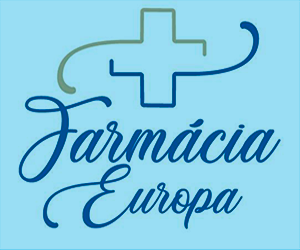Memory loss in old age breakthrough offers dementia hope, say researchers

Researchers may have found a way to slow down or prevent memory problems that arise in old age and which can become devastating in patients with dementia.
The fresh hope comes from a series of studies in humans and mice that identified a protein which causes memory impairment when it builds up in the blood and brain with age.
Scientists found that injections of the protein made young animals’ memories worse and reduced the growth of new neurons in their brains. Further studies showed that blocking the protein prevented memory loss in older animals, making them smarter than untreated animals of the same age.
The findings are the latest to come from researchers in the US who have shown in previous work that blood plasma taken from young animals can rejuvenate the muscles, brains and other tissues of older animals.
Those studies have led scientists to suspect that blood plasma contains a cocktail of factors that either drive or counteract the natural ageing process. Major efforts are now underway to identify the different components at work in the hope of turning them into a therapy. A human trial to test the effects of young plasma on Alzheimer’s patients is already underway.
If scientists can work out which substances in blood affect the ageing process, and prove that they work in humans, they could potentially create a mixture that slows down the ageing process, at least partially. The therapy might not make people live longer, but it could keep them healthy for longer, by staving off conditions of old age, such as dementia.
“I think there are two ways we can improve or reverse the hallmarks of ageing,” said Saul Villeda, the lead author on the study at the University of California, San Francisco. “One of them is to administer pro-youthful factors, but the other is to target these pro-ageing factors.”
Writing in the journal Nature Medicine, the scientists describe how they noticed an age-related rise in the levels of beta-2-microglobulin (B2M), a protein in the blood of mice and humans. Scores of proteins go up and down in the blood as organisms age, but Villeda found evidence from other studies that B2M might play a role in age-related disorders. For example, patients on long-term kidney dialysis can have raised levels of B2M in their blood, and these people tend to suffer the worst cognitive decline.
To test the effect of B2M, Villeda and his colleagues injected young mice with the protein and had them perform different tasks. In the first set of experiments, mice were trained to find a platform hidden just below the surface in a water maze. Mice put into the maze were out of their depth, but used visual clues, including triangles and heart shapes around the room, to find their bearings and then make their way to the platform, which they could climb up onto.
“Young animals are really good at this. They will make perhaps one or two mistakes over the course of three trials. But when you give them B2M, they’ll make perhaps five mistakes. It’s a striking difference,” Villeda said. The effect was stronger when B2M was injected directly into the brain.
In a second set of experiments, mice were put in a chamber and after two minutes given a small electric shock through a grille on the chamber floor. The mice were then removed from the chamber, but returned the next day.
Young mice typically explored the chamber for a few moments before they froze: their natural reaction to remembering where they were. But mice given B2M froze much less, because their memories were not as sharp.
“A normal young mouse will freeze about 50 to 60% of the time in the first minute. But after B2M, they will freeze for about half that time,” said Villeda. The B2M seemed to impair the animals’ memories of the electric shock, making them respond like much older mice. When animals were tested a month after injections of B2M, it had no effect. That is good news, said Villeda, as it means that the harm caused by B2M is not permanent.
The scientists followed up with tests on mice that had been genetically modified to ensure they did not produce B2M. Young animals that had no B2M seemed perfectly normal. But as the animals aged, their memories did not decline at the same rate as other mice. “When we looked at the older animals, they were much smarter. They did not develop the same kinds of memory impairments. I was really surprised,” said Villeda.
The study went found that B2M works alongside a protein complex called MHC1. Villeda suspects that a drug that stopped the two working together could help reduce memory loss. “If we block the interaction between B2M and MHC1, could that either prevent memory loss with old age, if we take it when we are younger? Could it reverse memory loss if we start when we are old?” Villeda said.
But that may not be necessary. “Perhaps we can just get rid of it in old people’s blood”, says Villeda.
Clare Walton at the Alzheimer’s Society said: ‘This research has identified an age-related protein in mice that damages an area of the brain that is important for memory. This interesting study highlights the importance of basic research in helping to find new targets for drugs to help stop cognitive decline.
“As this study is only at the early stages, we first need to see whether the protein causes similar effects in the human brain before the research can be taken forward into potential treatments.”







